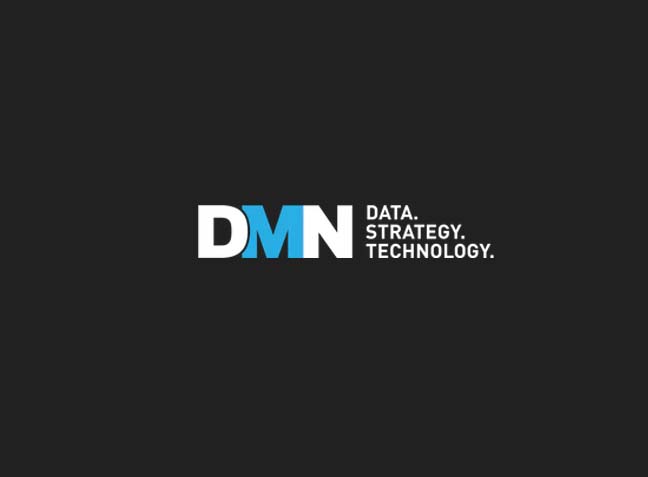Digital marketing consulting is crucial for businesses looking to navigate the online world effectively. As technology evolves, having expert guidance can help companies reach their goals and connect better with their customers. This article explores the role of digital marketing consultants, the services they provide, and how they can help businesses thrive in a competitive landscape.
Key Takeaways
- Digital marketing consulting helps businesses adapt to online changes.
- Consultants offer services like planning strategies and measuring success.
- Understanding customer needs is essential for effective marketing.
- Using data wisely can improve decision-making and strategies.
- The future of marketing will focus on technology and sustainability.
Understanding the Role of Digital Marketing Consulting

Defining Digital Marketing Consulting
Digital marketing consulting is all about helping businesses use online tools to reach their customers. It’s a strategy that focuses on using digital platforms to create awareness and drive sales for products or services. This means understanding how to connect with people where they spend most of their time—online.
Importance in Modern Business
In today’s world, having a strong digital presence is crucial. Businesses that ignore digital marketing risk falling behind. Here are a few reasons why it matters:
- Increased Visibility: More people can find your business online.
- Cost-Effective: Digital marketing often costs less than traditional marketing.
- Targeted Reach: You can reach specific audiences based on their interests and behaviors.
Key Objectives and Goals
The main goals of digital marketing consulting include:
- Building Brand Awareness: Making sure more people know about your brand.
- Driving Traffic: Getting more visitors to your website.
- Boosting Sales: Turning visitors into customers.
Digital marketing is not just a trend; it’s a necessity for businesses today. By leveraging the right strategies, companies can thrive in a competitive landscape.
Core Services Offered by Digital Marketing Consultants
When I think about the core services that digital marketing consultants provide, I see them as essential tools for any business looking to thrive online. Here’s a closer look at what they offer:
Strategic Planning and Execution
Digital marketing consultants help businesses create a clear plan. This includes:
- Setting goals that align with the business vision.
- Identifying the right audience to target.
- Choosing the best channels to reach that audience.
Technology and Platform Integration
In today’s world, technology is key. Consultants assist in:
- Integrating various digital tools to streamline processes.
- Ensuring that all platforms work together smoothly.
- Training teams to use these technologies effectively.
Performance Measurement and Analytics
Understanding how well your marketing is doing is crucial. Consultants focus on:
- Tracking key performance indicators (KPIs).
- Analyzing data to find areas for improvement.
- Making data-driven decisions to enhance future strategies.
By leveraging the right mix of human and technical enablers, businesses can create value and growth in their digital marketing efforts.
In summary, digital marketing consultants provide a range of services that help businesses navigate the complex digital landscape. Whether it’s through strategic planning, technology integration, or performance measurement, their expertise is invaluable for achieving success in the digital world. These services are not just helpful; they are essential for any business aiming to grow online.
Building an Effective Digital Marketing Strategy


Creating a strong digital marketing strategy is essential for any business today. A well-crafted strategy helps you connect with your audience effectively. Here are some key areas to focus on:
Customer Segmentation and Targeting
- Identify your audience: Understand who your customers are and what they need.
- Segment your market: Divide your audience into smaller groups based on shared characteristics.
- Target effectively: Use tailored messages to reach each segment.
Content Creation and Management
- Create valuable content: Focus on what your audience finds useful or entertaining.
- Manage your content: Keep your content organized and updated.
- Engage with your audience: Encourage feedback and interaction to build relationships.
Omnichannel Marketing Approaches
- Use multiple channels: Reach your audience through various platforms like social media, email, and websites.
- Ensure consistency: Keep your messaging and branding uniform across all channels.
- Track performance: Measure how well each channel is performing to optimize your strategy.
A successful digital marketing strategy is not just about promoting a product; it’s about building relationships and trust with your customers.
In summary, focusing on customer segmentation, effective content management, and a consistent omnichannel approach will help you build a robust digital marketing strategy. Remember, the goal is to connect with your audience in meaningful ways.
Leveraging Data and Analytics in Digital Marketing


Importance of First-Party Data
In today’s digital world, understanding your audience is crucial. First-party data is the information you collect directly from your customers. This can include things like their purchase history, website visits, and feedback. By using this data, I can create more personalized marketing strategies that truly resonate with my audience.
Advanced Analytics Techniques
To make the most of the data I gather, I use advanced analytics techniques. This means looking at the data in different ways to find patterns and insights. Here are some techniques I often use:
- Descriptive Analytics: Understanding what has happened in the past.
- Predictive Analytics: Forecasting what might happen in the future based on past data.
- Prescriptive Analytics: Suggesting actions to take based on data insights.
Data-Driven Decision Making
Making decisions based on data is essential for success. I always ask myself:
- What does the data tell me about my audience?
- How can I use this information to improve my marketing strategies?
- What changes should I make based on the insights I gather?
By focusing on data, I can create marketing strategies that are not only effective but also adaptable to changing trends.
In summary, leveraging data and analytics is not just about collecting information; it’s about using it wisely to enhance my marketing efforts and connect better with my audience.
Remember, the first step in leveraging data analytics is gaining a deep understanding of your audience.
Enhancing Customer Experience Through Digital Marketing
Personalization and Customization
In today’s world, personalization is key to making customers feel valued. I believe that when businesses tailor their messages and offers to individual preferences, they create a stronger connection. Here are some ways to achieve this:
- Use customer data to understand preferences.
- Create targeted marketing campaigns.
- Offer personalized product recommendations.
Customer Journey Mapping
Mapping out the customer journey helps businesses see how customers interact with their brand. This process allows us to identify pain points and improve the overall experience. I often recommend:
- Analyzing customer touchpoints.
- Gathering feedback at each stage.
- Adjusting strategies based on insights.
Utilizing AI and Automation
Artificial intelligence and automation can significantly enhance customer experience. By using these technologies, businesses can streamline processes and provide quicker responses. For instance:
- Chatbots can handle customer inquiries 24/7.
- Automated emails can follow up on purchases.
- AI can analyze data to predict customer needs.
In my experience, leveraging technology not only improves efficiency but also creates a more engaging experience for customers. Digital transformation is essential for businesses aiming to enhance customer satisfaction and loyalty.
By focusing on these areas, we can create a more enjoyable and effective customer experience that meets the evolving needs of consumers.
Highlight:
- Digital transformation is crucial for enhancing customer experience.
- Artificial intelligence plays a significant role in this process.
Future Trends in Digital Marketing
As I look ahead, I see some exciting changes coming in the world of digital marketing. Staying ahead of the curve is essential for businesses that want to thrive. Here are some key trends I believe will shape the future:
Emerging Technologies
- Artificial Intelligence (AI): AI is becoming a game-changer. From chatbots to predictive analytics, it will enhance customer experiences and drive efficiency.
- Augmented Reality (AR): AR will allow customers to interact with products in a virtual space, making shopping more engaging.
- Voice Search Optimization: With more people using voice assistants, optimizing for voice search will be crucial.
Shifts in Consumer Behavior
- Personalization: Customers expect tailored experiences. Brands that can deliver personalized content will stand out.
- Sustainability: More consumers are choosing brands that prioritize eco-friendly practices.
- Mobile-First: As mobile usage continues to rise, businesses must ensure their marketing strategies are mobile-friendly.
Sustainable Marketing Practices
- Green Marketing: Companies will focus on promoting their sustainable practices to attract eco-conscious consumers.
- Transparency: Being open about business practices will build trust with customers.
- Community Engagement: Brands will increasingly engage with their communities to foster loyalty and connection.
The future of digital marketing is not just about technology; it’s about understanding and adapting to the changing needs of consumers.
In summary, the landscape of digital marketing is evolving rapidly. By embracing these trends, businesses can position themselves for success in the years to come. Let’s not forget that brands leveraging AI will likely lead the way in this new era!
Case Studies and Success Stories


Retail Industry Transformations
In the retail world, I’ve seen how companies can change dramatically. For instance, a well-known department store revamped its approach to customer experience. They focused on personalization, which made shoppers feel valued. This shift led to a 30% increase in sales!
Automotive Industry Innovations
The automotive sector is also evolving. A major car manufacturer adopted digital tools to enhance its marketing strategies. By using data analytics, they targeted specific customer groups more effectively. This resulted in a 25% boost in customer engagement.
Healthcare Sector Advancements
In healthcare, I’ve observed significant improvements as well. A hospital implemented a new digital marketing strategy that emphasized patient education. This not only improved patient satisfaction but also increased appointment bookings by 40%.
| Industry | Change Implemented | Result |
|---|---|---|
| Retail | Personalized shopping experiences | 30% sales increase |
| Automotive | Data-driven marketing strategies | 25% customer engagement boost |
| Healthcare | Focus on patient education | 40% more appointments |
These case studies show how businesses can thrive by embracing digital marketing. It’s all about understanding the customer and adapting to their needs.
By learning from these examples, I believe any business can find its path to success in the digital age.
Frequently Asked Questions
What is digital marketing consulting?
Digital marketing consulting helps businesses improve their online marketing strategies. Consultants guide companies on how to reach their customers better using digital tools.
Why is digital marketing important for businesses?
Digital marketing is crucial because many people use the internet to find products and services. It helps businesses connect with customers where they spend their time.
What services do digital marketing consultants provide?
Consultants offer various services like planning marketing strategies, using technology, and measuring how well campaigns perform.
How can I create a digital marketing strategy?
To create a digital marketing strategy, start by knowing your audience, making engaging content, and using multiple channels to reach customers.
What role does data play in digital marketing?
Data helps businesses understand customer behavior. By analyzing data, companies can make better decisions and improve their marketing efforts.
What are some future trends in digital marketing?
Future trends include using new technologies, changing consumer habits, and focusing on sustainable marketing practices.





